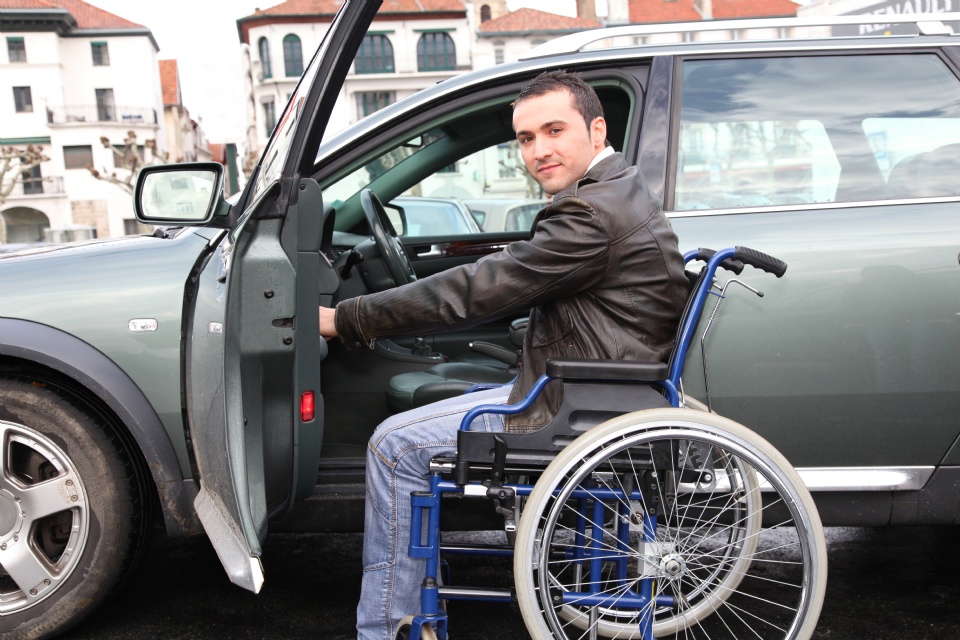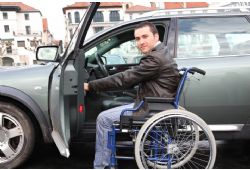Words matter, and for people with disabilities, using the right
terminology is crucial in order to be accurate and respectful. A
Way with Words, a document
from Employment and Social Development Canada, states that attitudes can be the
foremost barrier facing people with disabilities and that, because words are a
reflection of those, it is fundamental to present positive information when
talking to and about people with disabilities.
It is essential to put the person first and the disability second
because, above all, people with disabilities are people. Their disability is just a part of who
they are, but it doesn't define them. For example, it’s not an autistic child but rather a child with autism.
Colleen Bernard, professor in the Special Care Counselling program at
Vanier College in Montreal, goes further than that. She says that it’s even
better to use the person’s name rather than calling them by their disability.
She says that the disability helps you understand the person’s situation, yet
it doesn’t help you to know that person. It is important to consider any
individual as a unique entity.
Bernard mentions that for parents of children with disabilities, it’s
often when they begin taking their children outside of the home that they start
hearing about what their children can’t do. Bernard suggests a more inclusive
approach. She says that it’s about learning about possibility instead, about
moving up from the situation. That is why it can be extremely demeaning to
people with disabilities to be called with words that suggest hopelessness,
sickness, doom or words that single them out as odd or different.
One efficient way to affect change in society is to start by having
these conversations in schools. For staff, Bernard suggests having a meeting at
the beginning of the school year in order to keep each other accountable. ‘‘It
comes down to the expectation of the role model in the room,’’ she says. ‘‘As a
teacher, I have a huge responsibility to show respect.’’ Being
language-sensitive within the school is a forward-thinking move and it helps
everyone involved to react with confidence.
Besides school workers, news professionals are also huge influencers on
the correct terminology to use, but it goes further than that. Coverage of
people with disabilities can easily fall to one extreme or another, such as
portraying people with disabilities as afflicted or as heroes who overcame
great odds. ‘‘Most people with disabilities are like most people in society,’’
says Bernard. ‘‘Most are in the average and we need to see more of the average
person that is getting by,’’ she says. ‘‘We all have our challenges in life and
we need to see the average, and also the diffferent challenges that those people
face.’’
Bernard
acts as an example. Her motto is Gandhi’s famous sentence, ‘‘Be the change you
want to see in the world.’’ Her positive influence is the proof that leading by
example and being inclusive is the way to show respect for everyone, whether
they live with a disability or not.

 In The Latest Issue:Latest Issue:
In The Latest Issue:Latest Issue:
- A Bittersweet Farewell
- The new Laval Aquatic Co...
- The End of an Era:
Articles
Calendar
Virtual- ANNUAL TEACHER APPRECIATION CONTEST
- APPUI LAVAL
- ARTS & CULTURE
- CAMPS
- CAR GUIDE
- CCIL
- CENTENNIAL ACADEMY
- CHARITY FUNDRAISING
- CITYTV
- COSMODÔME
- COMMUNITY CONNECTIONS
- COVER STORY
- DINA DIMITRATOS
- ÉCOLE SUPÉRIEURE DE BALLET DU QUÉBEC
- EDITORIALS
- ÉDUCALOI
- EDUCATION
- EMPLOYMENT & ENTREPRENEURSHIP
- FÊTE DE LA FAMILLE
- FÊTE DU QUARTIER SAINT-BRUNO
- FAMILIES
- FESTIVAL LAVAL LAUGHS
- FÊTE DE QUARTIER VAL-DES-BRISES
- FINANCES
- GLI CUMBARE
- GROUPE RENO-EXPERT
- HEALTH & WELL-BEING
- 30 MINUTE HIT
- ANXIETY
- CHILDREN`S HEALTH & WELLNESS
- CLOSE AID
- DENTAL WELLNESS
- EXTREME EVOLUTION SPORTS CENTRE
- FONDATION CITÉ DE LA SANTÉ
- GENERAL
- HEARING HEALTH
- MESSAGES FROM THE HEALTH AGENCY OF CANADA
- MENTAL HEALTH
- SEXUALITY
- SOCIAL INTEGRATION
- SPECIAL NEEDS
- TEENS
- THE NUTRITION CORNER
- THE NUTRITION CORNER - RECIPES
- VACATION DESTINATION
- WOMEN'S FITNESS
- WOMEN'S HEALTH
- HILTON MONTREAL/LAVAL
- HOME & GARDEN
- INTERNATIONAL WOMEN'S DAY
- JAGUAR LAVAL
- LAVAL À VÉLO
- LAVAL FAMILIES TV SHOW
- LAVAL FAMILIES MAGAZINE CARES
- LAVAL URBAN IN NATURE
- LE PARCOURS DES HÉROS
- LES PETITS GOURMETS DANS MA COUR
- LEON'S FURNITURE
- LEONARDO DA VINCI CENTRE
- LFM PREMIERES
- LIFE BALANCE
- M.P. PROFILE
- MISS EDGAR'S AND MISS CRAMP'S SCHOOL
- MISSING CHILDREN'S NETWORK
- NETFOLIE
- NORTH STAR ACADEMY LAVAL
- OUTFRONT MEDIA
- PASSION SOCCER
- PARC DE LA RIVIÈRE-DES-MILLE-ÎLES
- PÂTISSERIE ST-MARTIN
- PIZZERIA LÌOLÀ
- PLACE BELL
- PORTRAITS OF YOUR MNA'S
- ROCKET DE LAVAL
- SACRED HEART SCHOOL
- SCOTIA BANK
- SHERATON LAVAL HOTEL
- SOCIÉTÉ ALZHEIMER LAVAL
- STATION 55
- STL
- SUBARU DE LAVAL
- TECHNOLOGY
- TEDXLAVAL
- TODAY`S LAURENTIANS AND LANAUDIÈRE
- TODAY`S LAVAL
- WARNER MUSIC
- THIS ISSUE
- MOST RECENT
Magazine
People with Disabilities: Using the Right Words
Articles ~e 105,7 Rythme FM 4 chemins Annual Teacher Appreciation Contest Appui Laval Arts & Culture Ballet Eddy Toussaint Camps THIS ISSUE MORE...
CONTESTS Enter our contests
CONTESTS Enter our contests
CALENDAR
Events & Activities
COMMUNITY Posts Events
PUBLICATIONS Our Magazine Family Resource Directory
LFM BUSINESS NETWORK Learn more
COUPONS Click to save!
COMMUNITY Posts Events
PUBLICATIONS Our Magazine Family Resource Directory
LFM BUSINESS NETWORK Learn more
COUPONS Click to save!
SUBSCRIPTIONS
Subscribe to the magazine
Un-Subscribe
E-NEWSLETTER Subscribe to our E-newsletter Un-Subscribe
WRITE FOR US Guidelines & Submissions
POLLS Vote today!
E-NEWSLETTER Subscribe to our E-newsletter Un-Subscribe
WRITE FOR US Guidelines & Submissions
POLLS Vote today!
ADVERTISERS
How to & Media guide
Pay your LFM invoice
SUGGESTIONS Reader's Survey Suggest a Listing
LFM About Us Our Mission Giving Back Contact Us
SUGGESTIONS Reader's Survey Suggest a Listing
LFM About Us Our Mission Giving Back Contact Us
 PICK-UP LOCATIONS
Get a copy of LFM!
PICK-UP LOCATIONS
Get a copy of LFM!
TERMS & CONDITIONS Privacy | Terms
ISSN (ONLINE) 2291-1677
ISSN (PRINT) 2291-1677
Website by ZENxDESIGN



 BY:
BY: 
Tweet
Share